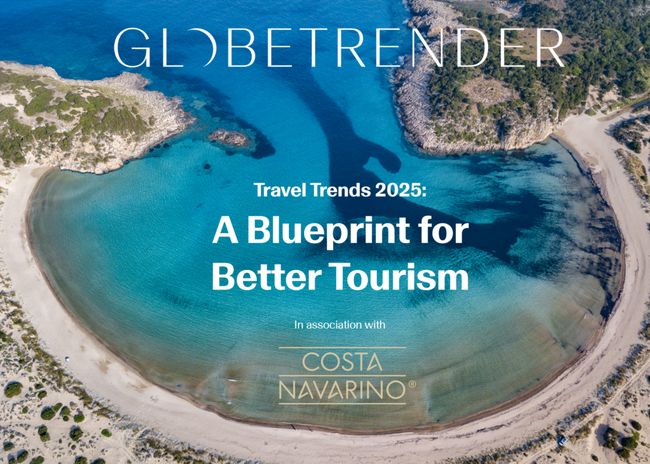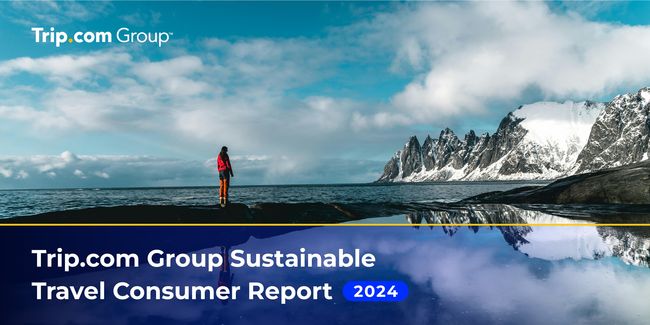旅遊電子商務網站 Booking.com 於 2024 年 6 月提出警告,過去一年半內,旅遊詐騙案件激增了 900%(Booking.com reports 900% increase in travel scams),其中 AI 扮演了關鍵角色。最常見的 AI 旅遊詐騙形式是以「優惠」作為釣魚誘因,基於模糊但難以抗拒的承諾來促使人們失去戒心而匆促行動,引誘用戶提供個人或支付用具詳細資料。這樣的衝動行為會讓個資迅速被收集,一旦資料洩露則後果嚴重。
詐騙手法如:
- 假的航空公司和酒店預訂網站
- 提供假旅遊優惠的 AI 聊天機器人
- 網路釣魚電子郵件或簡訊
- AI 生成假評論
- 假的旅遊行程和 AI 生成的圖片。
以下是該訊息重點報導全文翻譯,請參考:(翻譯內容由 ChatGPT 生成,再經人為修飾)
Booking.com 警告指出,過去 18 個月內,旅遊詐騙案件激增了 900%,其中 AI 扮演了關鍵角色。
2023 年,澳洲人因詐騙損失了 27 億澳元(約 567 億台幣),20% 的人表示曾是旅遊詐騙的受害者。接近五分之一的受害者損失了 500 澳元(約 1 萬元台幣)或更多,主因是騙徒運用 AI 使出更精細的詐騙手法。
接近聖誕節時,人們搜尋「最後一分鐘假日優惠」的次數會比過去幾個月激增 250%,AIPRM 的專家列出了一份假日期間旅客應當警惕的 AI 驅動詐騙威脅清單。
趕走詐騙者:AI 驅動旅遊詐騙的手法
1. 假的航空公司和酒店預訂網站:
由於AI的幫助,騙徒不再需要是技術專家也能創建模仿正規旅遊預訂平台的網站。這些網站通常以吸引人的飛機票和住宿價格為誘餌,用「限時促銷」或「僅剩1個名額」等語句來迫使消費者快速下決定。當你輸入個人資料後,騙徒就能竊取你的個人和財務訊息,讓你只得一張虛假的票,還損失金錢。
在度假季節保護自己,務必在上網預訂旅行服務時多加小心。留意可疑的網址、拼寫錯誤或網站設計和優惠中任何異常之處。透過官方管道雙重檢查,並在提交個人訊息前閱讀經過驗證的評論。一般來說,若某個優惠看似好得令人難以置信,那就很可能是詐騙。
2.提供假旅遊優惠的AI聊天機器人:
騙徒可以利用AI驅動的聊天機器人冒充客服人員,提供飛機票、酒店或假日套餐的巨大折扣。這些機器人可能會要求敏感的個人訊息或要求用戶預先支付不存在的行程。
為了避免成為受害者,通過官方旅遊網站核實任何線上發現的優惠,並避免在不熟悉的管道上提供付款訊息。如果感覺過於催促,這就是一個警告信號。在最終完成任何旅遊預訂之前,請通過官方客服電話或電子郵件確認所有細節。
3. 網路釣魚電子郵件和簡訊:
有五分之一的人會點擊AI生成的釣魚電子郵件,令人震驚的是65%的人會經由這些郵件中的網站欄位暴露個人訊息。詐騙者利用AI偽裝成合法公司,生成極為可信的釣魚內容。想像一下,收到一封告知你航班取消的郵件,並要你必須立即點擊鏈接且輸入付款訊息以保留預訂。由於必須快速回應的壓力,你可能不小心將財務訊息交到詐騙者手上。
要在假日期間保持安全,請勿點擊可疑鏈接,也不要在未經申請的郵件或簡訊中提供敏感訊息。始終檢查發件人的電子郵件地址,對任何要求個人資料的溝通保持警惕。如有疑問,直接聯繫航空公司、酒店或旅行社。
4. AI生成假評論:
假航空公司評論激增了189%,僅Tripadvisor去年就標記了創紀錄的200萬條假評論。隨著ChatGPT等AI工具的崛起,騙徒可以在數分鐘內生成數百條看似真實、好評如潮的評論,使旅客更難分辨真實評論和虛假評論。
為了避免被騙,跨多個來源查閱評論,不要僅依賴於旅遊預訂網站上的評論。相反地,可以查看獨立評論平台和社交媒體的其他反饋。注意模式——如果一個地點在短時間內出現大量極為正面的評論,這可能是由AI生成或由騙徒植入的,值得警惕。真實的評論通常更為平衡,包含正面和建設性的意見。
5. 假的旅遊行程和AI生成的圖片:
雖然現在許多旅客使用AI來規劃行程,詐騙者也利用此技術製作看似專業的行程表來欺騙受害者。這些假行程通常包含有吸引力的假日套餐,承諾一場令人難忘的度假體驗,並使用AI生成的圖片來推銷虛假活動,使一切看起來非常誘人。一旦你支付了訂金或全額,結果會發現你的夢想假期根本不存在!
為了遠離狡猾的騙徒,在遇到看似過於美好的優惠時保持警覺,並驗證來源。AI生成的行程表可能看起來很精緻,但通常包含一些微小的不一致。檢查缺失或不匹配的細節,仔細檢視照片——AI生成的圖片可能有不自然的光線或模糊區域。
AIPRM創始人Christoph C. Cemper表示:「若感受到任何緊迫感,無論是通過生成式AI表達地多麼合理,都是各種詐騙類型的最重要警示,包括預訂旅行和假期的詐騙。如今,幾乎任何東西都能被AI偽造,所以如果描述過於完善、優惠過於美好、圖片過於精美,那麼我會特別小心。」
「最常見的AI旅遊詐騙形式是以「優惠」作為釣魚誘因,基於模糊但難以抗拒的承諾來促使人們失去戒心而匆促行動,引誘用戶提供個人或支付用具詳細資料。這樣的衝動行為會讓個資迅速被收集,一旦數據洩露則後果自負。有些身分盜竊事件受害者甚至幾乎不記得曾與詐騙訊息互動過,導致法律和警察系統忙於處理數月之久。」
「如果你認為自己成了詐騙受害者,儘管這很痛苦,但任何已經暴露的資料都應該設法使其失效。你幾乎無法改變住址,但首先和最簡單的措施是儘快聯繫你的銀行,封鎖信用卡。」
「雖然建議向警方或網路犯罪部門報案,但要注意,報案通常只為受害者提供教育,而沒辦法立即解決問題。」
附:
防毒軟體Bitdefender建議旅客防範旅遊詐騙的方法:
1. 啟用雙重驗證:為您的帳戶新增一層安全防護。
2. 謹慎注意連結網址:避免點擊來自不詳來源或可疑電子郵件的連結,可使用 Scamio 進行檢查。
3. 核實聯絡資訊:確認您預訂的網站提供明確的聯絡資訊,包括電話號碼。
4. 預訂套裝假期:選擇套裝假期,而非預訂單獨行程,以獲得更好的保障。
5. 使用信用卡付款:使用信用卡支付以增強防範詐騙的保護措施。
How to protect yourself from travel scams
Recommendations For Travelers
- Enable Two-Factor Authentication: Add an extra layer of security to your accounts.
- Be Cautious with Links: Avoid clicking links from unknown sources or suspicious emails. Check them with Scamio.
- Verify Contact Information: Ensure that the website you are booking from provides clear contact details, including a phone number.
- Book Package Holidays: Opt for package holidays instead of separate bookings for better protection.
- Use Credit Cards: Pay with credit cards to enhance your protection against fraud.
報導原文:
A stark warning from Booking.com highlights a dramatic 900 per cent increase in travel scams over the past 18 months, with AI playing a key role.
In 2023, Australians lost a total of $2.7 billion to scams, with 20 per cent reporting they had fallen victim to holiday scams. Nearly 1 in 5 victims lost $500 or more, as AI-wielding fraudsters employ more sophisticated tactics.
With searches for ‘last minute holiday deals’ surging by a whopping 250 per cent over the past months as we approach Christmas, the experts at AIPRM compiled a list of the top AI-driven threats travelers should watch out for this holiday season.
Sleigh the scammers: AI-powered travel scams to watch out for this Christmas holiday
- Fake airline and hotel booking websites
Thanks to AI, scammers no longer need to be tech experts to create convincing websites that mimic legitimate travel booking platforms. Often advertising irresistible prices for flights and accommodations, these sites lure travelers with offers that seem too good to miss. Fraudsters also often play on urgency, using phrases like “limited-time sale” or “only 1 left” to push consumers into making quick decisions. Once you input your details, scammers can steal your personal and financial information, leaving you with a ticket to nowhere and out of pocket.
Protect yourself this holiday by being extra vigilant when booking travel online. Watch out for suspicious URLs, small spelling errors or anything that feels off about the website’s design or offers. Double-check through official channels and read verified reviews before submitting your personal information. As a rule of thumb, if an offer seems too good to be true, it probably is.
- AI chatbots offering fake travel deals
AI-powered chatbots can be used by scammers to impersonate customer service representatives, offering huge discounts on flights, hotels, or holiday packages. These bots may ask for sensitive personal information or prompt users to pay upfront for non-existent trips.
To avoid falling victim, verify any deals or offers you find online through official travel websites and avoid providing payment information through unfamiliar channels. If something feels too rushed, it’s a red flag. Double-check all details and confirm through official customer service numbers or emails before finalizing any travel booking.
- Phishing emails and text messages
One in five people click on AI-generated phishing emails, with a shocking 65 per cent tricked into revealing personal information through input fields on websites linked in those emails. Scammers are using AI to craft highly convincing phishing content disguised as legitimate companies. Imagine receiving a text or email claiming your flight is canceled, and to avoid losing your reservation, you must click a link and enter your payment details immediately. The pressure to act quickly could lead you to inadvertently put your financial information into the hands of fraudsters.
To stay safe this holiday season, never click on suspicious links or provide sensitive information through unsolicited emails or texts. Always check the sender’s email address, and be cautious of any communication that asks for personal details. If in doubt, contact the airline, hotel, or travel agency directly.
- AI-generated holiday reviews
Fake AI-generated airline reviews have skyrocketed by an eye-popping 189%, while Tripadvisor alone flagged a record 2 million reviews as fake on its platform last year. With the rise of AI tools like ChatGPT, scammers can now generate hundreds of seemingly genuine, glowing reviews in minutes, making it harder for travelers to distinguish between real and fraudulent content.
To avoid being duped, cross-check reviews across multiple sources and don’t rely solely on reviews from travel booking websites. Instead, check independent review platforms and social media for additional feedback. Pay attention to patterns – if a place has an unusually high number of extremely positive reviews posted in a short period of time, it’s likely a red flag that they’ve been generated by AI or planted by scammers. Authentic reviews tend to be more balanced, including both positive and constructive feedback.
- Fake travel itineraries and AI-generated images
While many travelers nowadays use AI to help plan their trips, scammers are also taking advantage of this technology to create professional-looking itineraries designed to deceive. These fake itineraries often feature attractive holiday packages that promise an unforgettable vacation at an unbeatable price, with AI-generated images used to promote false activities, making everything seem enticing. Once you send a deposit or full payment, you might find that your dream holiday doesn’t exist at all!
To steer clear of sneaky fraudsters, stay alert when presented with offers that seem too good to be true and verify the source. AI-generated itineraries may appear polished, but they often contain subtle inconsistencies. Check for missing or mismatched details and examine the photos closely – AI-generated images can have imperfections like unnatural lighting or blurry areas.
Christoph C. Cemper, founder of AIPRM said: “I believe that a (false sense) of urgency, no matter how well explained (using Generative AI) is the top red flag for any kind of scams, including those for booking trips and holidays. Nowadays, nearly anything can be faked with AI so if it is ‘too’ well written, ‘too’ good to be true in the offer, or ‘too nice’ in pictures, then I would be especially careful.”
“The most common form of AI scam is a phishing ‘offer’, that lures the user into providing their personal or payment details too soon/too early based on vague promises that seem too good to resist. Such impulse actions are used to harvest the data as quickly as possible, without much to do once the data is revealed. I know of cases where the legal and police system were busy for months due to an identity theft incident where the victim barely remembers engaging with.
“If you think you have fallen victim to a scam, as painful as it is, any kind of revealed information needs to be rendered useless. You can hardly move to another place, so fake ecommerce orders can still happen, but locking down your credit card is the first and most simple thing to do. Contacting your bank as soon as possible is essential.
“While reporting the incident to the police or a cyber-crime unit is recommended, it’s worth noting that these reports often result in education for the victim rather than immediate resolution.”








